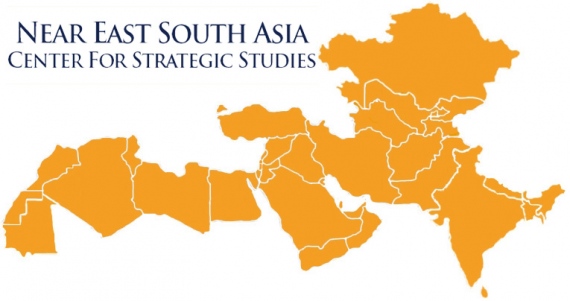As Washington decides whether to intervene more assertively in Syria, the civil war there has once again spilled across the country’s borders. Last week, armed groups affiliated with the Free Syrian Army clashed with an Iraqi army convoy that was defending Syrian government troops near the Rabia-Yaarabiya border crossing. The result was 62 Syrian and nine Iraqi soldiers killed or wounded along with six members of the FSA.
In response to these events, the Iraqi government announced the formation of a new Iraqi Army unit in the city of Sinjar located along the areas disputed by Arabs and Kurds in Nineveh province bordering Syria. The Iraqi government justified this deployment due to fears of further infiltration of Iraq’s borders by Syrian opposition forces allied with Jabhat Al-Nusra. These developments further escalated tensions between the Iraqi government and the Kurdish Regional Government in the disputed territories that have been simmering since November when confrontations near Kirkuk resulted in the deaths of 11 people. These events show how the crisis in Syria is simultaneous serving to further destabilize the situation in Iraq.
Somehow amidst these developments, Iraqi Prime Minister Maliki found time to host Egyptian Prime Minister Kandil and discuss economic and energy issues, despite the Muslim Brotherhood led government’s support of the rebels in Syria. Further complicating the situation are upcoming Iraqi provincial elections on April 20th, along with continued protests in Iraq’s predominantly Sunni areas against the authoritarian nature of the Iraqi central government.
So what are we to conclude from all of these simultaneous events? 1) Iraq feels incredibly vulnerable to the effects of a destabilized Syria – so much so, that it is reluctantly being pushed further into the Iranian orbit. Washington should capitalize on this insecurity and help its “strategic partner” reintegrate with the GCC and the Sunni Arab world instead. Iraq’s recent hosting of the Arab League Summit and its high level talks with Egypt make for good starting points. 2) Any decision Washington makes regarding the level of support it decides to provide the Syrian rebels should take into account conclusion number one above. 3) Finally, Iraq is not immune to the Arab Awakening. Maliki’s heavy handed moves to quell the Sunni protests and consolidate power at the expense of the country’s independent institutions have not gone unnoticed. Iraq is dangerously close to no longer choosing to “solve” its problems through the political process instead of through violence as the U.S. has touted since the withdrawal of its military forces.
The Obama administration’s rush to declare Iraq a success and shift to other policy priorities in the Middle East such as Syria and Egypt ignores the fact that all three are interrelated. Washington is wise to resist military escalation in the region, but this is no excuse to bury its head in the sand and ignore how the internal politics in one country can spillover into the wider region.
Please note that the views expressed in this piece do not represent the official policy or position of the National Defense University, the Department of Defense, or the U.S. government.
